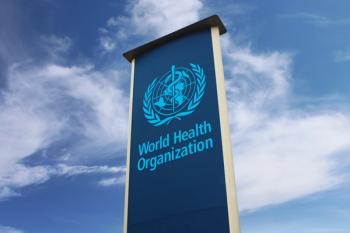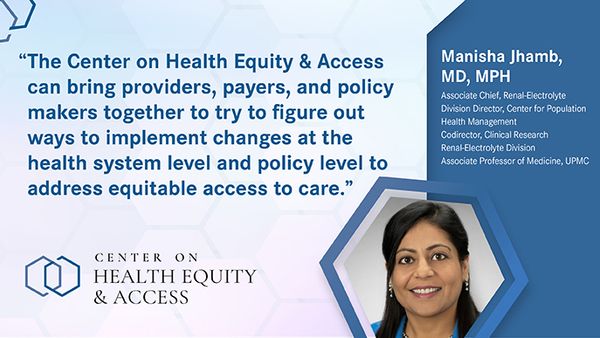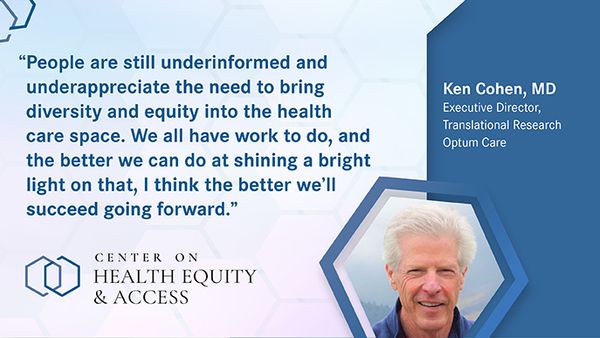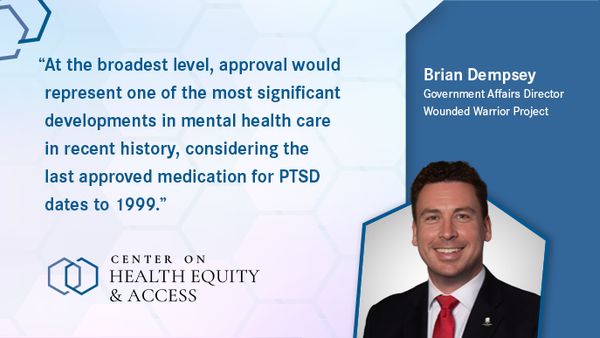
Center on Health Equity & Access
Latest News

Latest Videos

Podcasts
CME Content
More News

The RAISE program provides awareness and shares comprehensive solutions to address the multifaceted reasons for missing and incomplete data across the real-world data continuum.

While DTC pharmacy models offer convenience, they may create cost, access, and guidance barriers for the "working poor."

A panel at the American Society of Hematology highlights the urgent need for genetic diversity in cancer studies, addressing disparities in treatment outcomes across different ancestries.

ICHRAs may help employers and employees manage rising premiums and the loss of extended tax credits, according to expert insights from Ben Light.

A new TROP2-targeted ADC showed promising efficacy in an early TNBC trial, with Erika Hamilton, MD, highlighting its potential for broader use in future treatment.

Public health dental hygienists expand dental care access and oral health education in underserved communities, improving overall health outcomes.

Experts explain that DTC models could improve medication adherence through convenience and incentives, but higher costs may limit their effectiveness.

Hereditary ovarian cancer genes occur across diverse populations, supporting inclusive genetic testing.

Polarized dermatoscopes produced higher-quality teledermatology images but at greater cost, raising questions about feasibility and equitable access.

Prerna Mewawalla, MD, discusses innovative strategies to enhance cancer care access, reduce clinician burden, and improve clinical trial diversity in real-world settings.

Guideline-recommended HF therapies do not improve major outcomes in Chagas disease, though sacubitril/valsartan improved NT-proBNP levels, new data show.

Despite the impact of targeted treatment in oncology, much work remains to bring these therapeutics to all patients, says Bhavana (Tina) Bhatnagar, DO.

Jennifer Graff, PharmD, and Brian Reid, MS, emphasize that DTC pharmacy models can give patients more convenient access to medications but may increase out-of-pocket costs.

With ACA subsidies ending in 2025, Ben Light explains how rising premiums may push individuals toward ICHRAs and reshape employer health coverage strategy.

Explore innovative strategies in dental care that are enhancing access, promoting health equity, and improving community health in Pennsylvania.

The guidelines highlight the need for lifelong obesity management, early diagnosis, comorbidity prevention, and patient-centered care.

New research shows immigrant children face higher odds of unmet medical needs as federal and state coverage rules narrow.

The uninsured rates may skyrocket when Medicaid work requirements go into effect and if the Affordable Care Act (ACA) subsidies are not extended.

The expansion of direct-to-consumer (DTC) pharmaceutical manufacturer models and the upcoming TrumpRx launch offer lower costs but create new complexities for patients.

With ACA subsidies and key CMS payment models ending in 2025, premiums are set to rise, shifting costs to consumers and employers.

While artificial intelligence showed empathy and precision in respiratory health care, its equitable adoption is paramount to prevent the widening digital divide, as highlighted at the European Respiratory Society Congress 2025.

A case-crossover study found that extreme heat increased mortality between 10% and 18%, with higher risks in vulnerable groups.

Svetlana Barbarash, MD, outlines the lack of cardiologists and transplant services in Las Vegas and the policy changes needed to close gender gaps in care.

Men's breast cancer awareness is crucial as it often goes unrecognized, leading to advanced stages at diagnosis, Michael Hassett, MD, explains.

Most US patients eligible for hepatitis B virus (HBV) treatment remain untreated, raising risks of liver disease and complications.






















